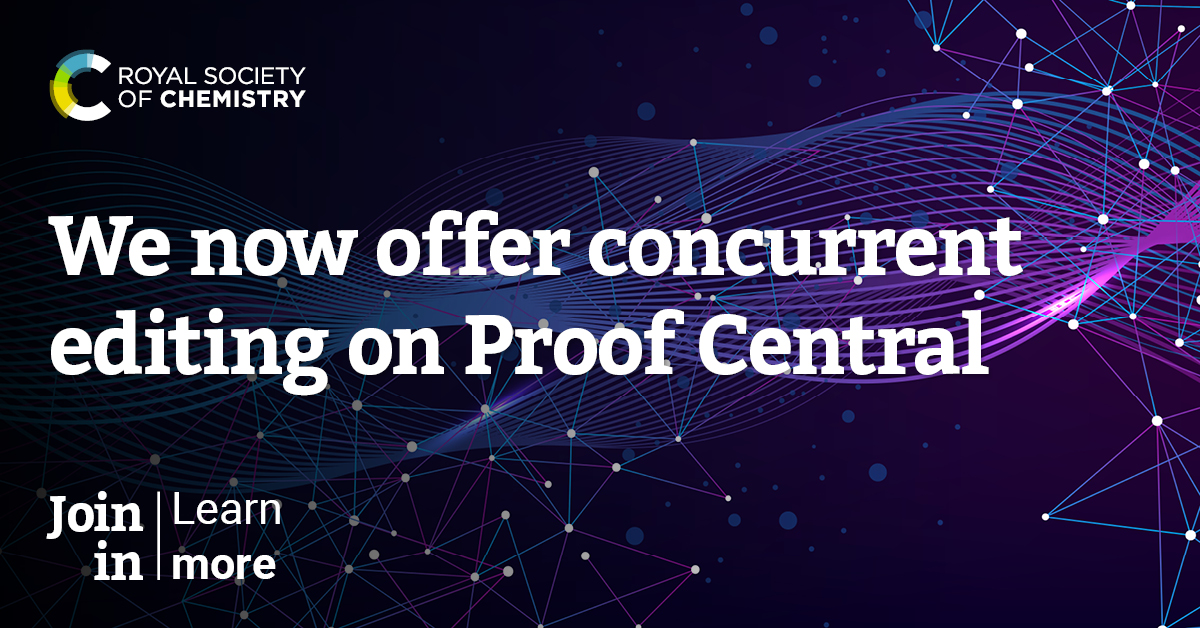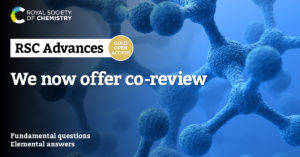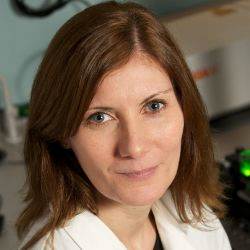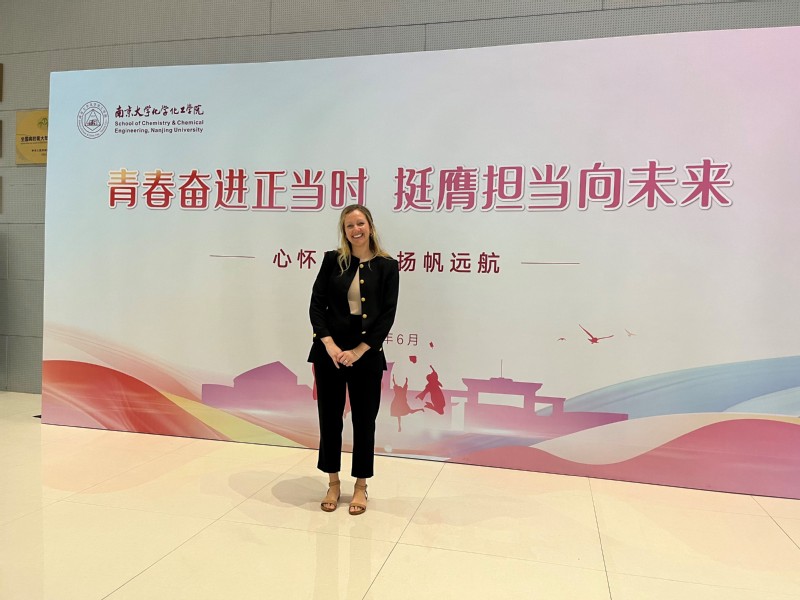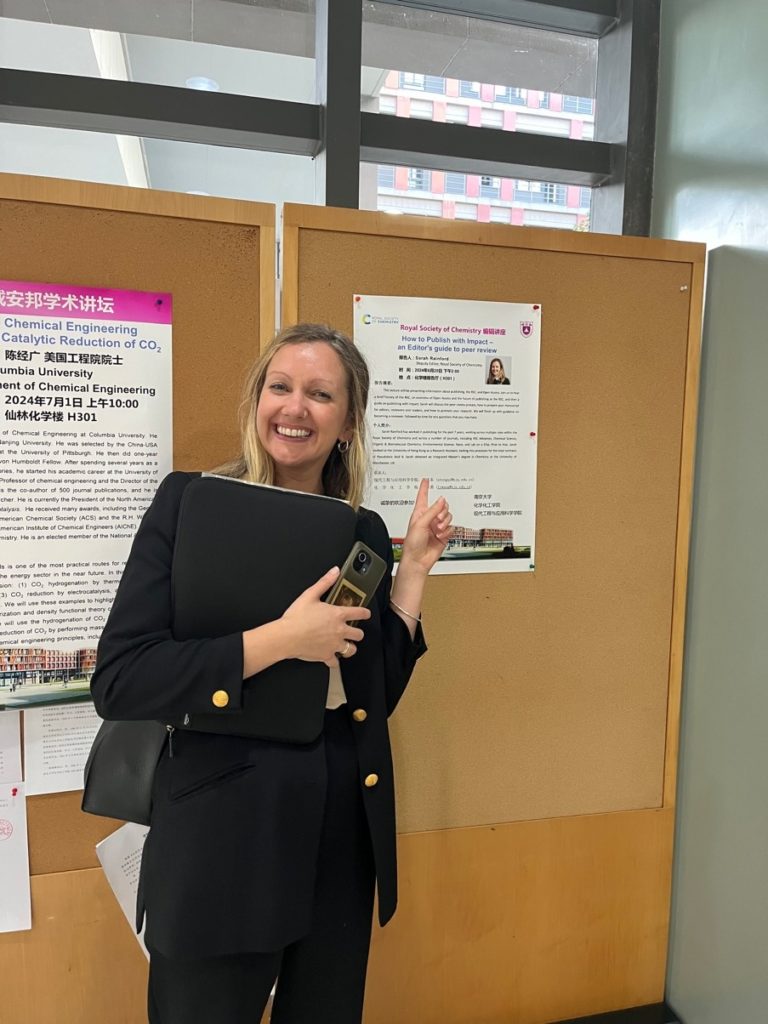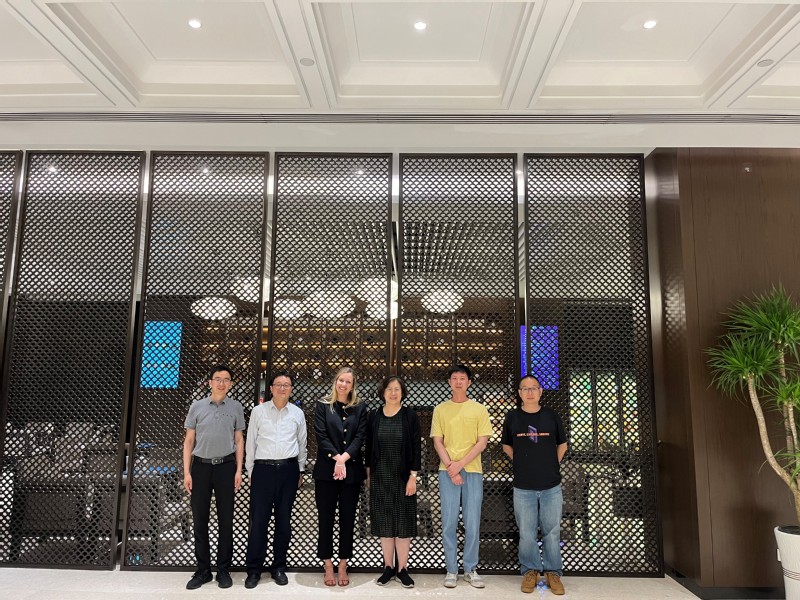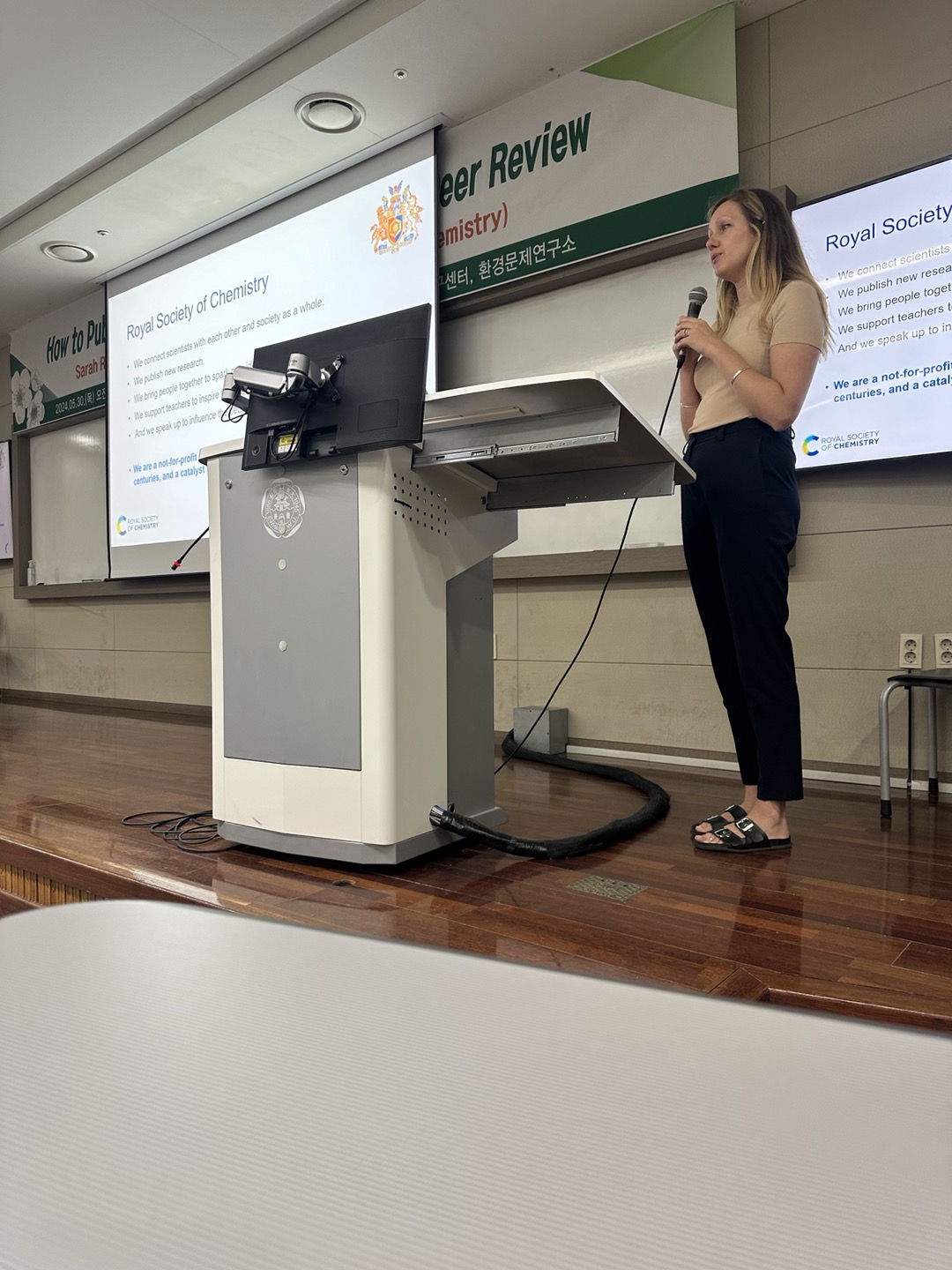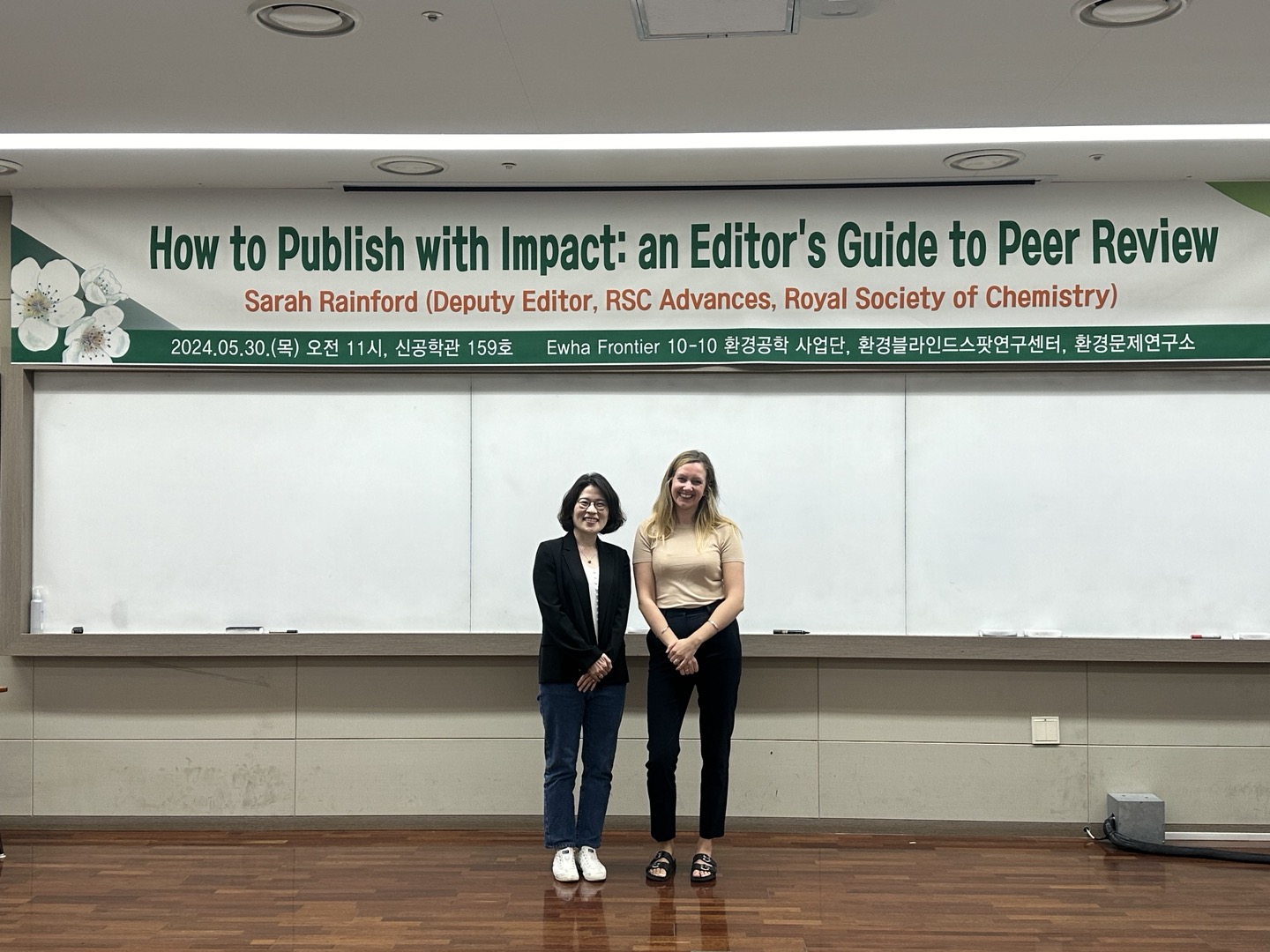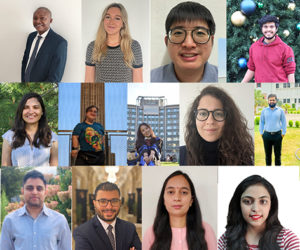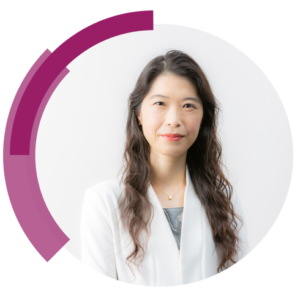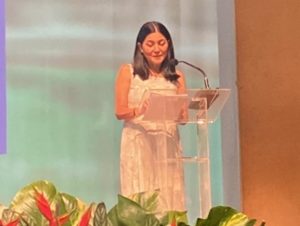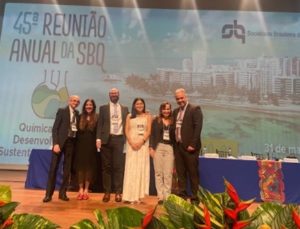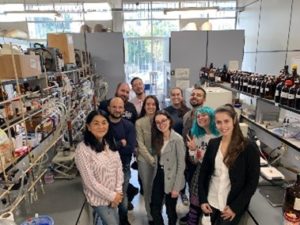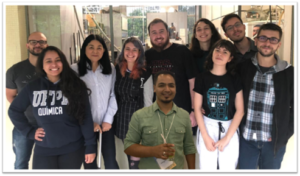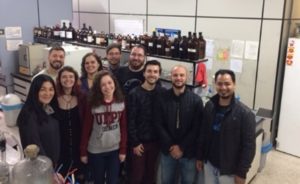The RSC Advances team is excited to welcome Professor Shannon Biros, Grand Valley State University, Michigan, USA and Professor Giulia Fiorani, Ca’ Foscari University of Venice, Italy as our newest Associate Editors.

Shannon Biros, Professor of Chemistry, Grand Valley State University, USA
Research areas: x-ray crystallography, supramolecular chemistry, f-element coordination chemistry, actinide and lanthanide separation chemistry
Shannon M. Biros joined the faculty of GVSU as an Assistant Professor of Organic Chemistry in the fall of 2008. She was a graduate of GVSU, receiving her BA in chemistry and BS in biomedical sciences in 2001. From there she moved to San Diego to pursue a PhD in chemistry at The Scripps Research Institute under the direction of Professor Julius Rebek, Jr. Following the completion of her thesis, Shannon spent a year at the University of California, Berkeley as a postdoctoral research associate in the laboratory of Professor Kenneth N. Raymond investigating the guest binding properties of a series of supramolecular metal-ligand clusters. She is currently in her thirteenth year as a faculty member at GVSU, and maintains an active research group of undergraduate students.
Browse a selection of Shannon’s RSC publications:
Synthesis of diphenyl-(2-thienyl)phosphine, its chalcogenide derivatives and a series of novel complexes of lanthanide nitrates and triflates, Troy Luster, Hannah J. Van de Roovaart, Kyle J. Korman, Georgia G. Sands, Kylie M. Dunn, Anthony Spyker, Richard J. Staples, Shannon M. Biros and John E. Bender, Dalton Trans., 2022,51, 9103-9115, https://doi.org/10.1039/D2DT01570F
A complex with nitrogen single, double, and triple bonds to the same chromium atom: synthesis, structure, and reactivity, Evan P. Beaumier, Brennan S. Billow, Amrendra K. Singh, Shannon M. Biros and Aaron L. Odom, Chem. Sci., 2016,7, 2532-2536, https://doi.org/10.1039/C5SC04608D
Supramolecular ligands for the extraction of lanthanide and actinide ions, Eric J. Werner and Shannon M. Biros, Org. Chem. Front., 2019,6, 2067-2094, https://doi.org/10.1039/C9QO00242A

Giulia Fiorani, Associate Professor, Ca’ Foscari University of Venice, Italy
Research areas: Green chemistry, Organic synthesis, Heterogeneous catalysis (green chemistry), Organic chemistry, Sustainable synthesis, biodegradable/biocompatible polymers, degradation of polymers
Giulia Fiorani received her BSc and MSc in Chemical Sciences from the University of Rome “Tor Vergata”. In 2010, she obtained her PhD in Chemical Sciences and Technologies from the same university, working on Ionic Liquids, under the supervision of Prof. Valeria Conte. From 2010 to 2012 Giulia was a Post-Doctoral Research Assistant at the University of Padua, working on hybrid polyoxometalates. She then moved to Ca’ Foscari University of Venice as a Post-Doctoral Research Assistant to work on linear organic carbonates. From March 2016 until October 2017, Giulia was a Post-Doctoral Research Assistant in polymer chemistry and polymerization catalysis under the supervision of Prof. Charlotte K. Williams, initially at Imperial College London and then at the University of Oxford. Since November 2017, Giulia has been a fixed-term Assistant Professor, and later a tenure-track Associate Professor of Organic Chemistry at the Department of Molecular Sciences and Nanosystems, Ca’ Foscari University of Venice.
In May 2015, she was shortlisted among the ten highly commended scientists for the ISGC Young Researcher Award. She was the recipient of the 2017 Junior Prize for Research on “Organic Chemistry for Environment, Energy and Nanoscience” awarded by the Organic Chemistry Division of the Italian Chemical Society and of the “Outstanding Young Researcher Award awardee” awarded by the International Scientific Committee of ICCDU XV, 5-7 July 2017, Shanghai (CN).
Giulia’s research interests focus on the development of novel synthetic and catalytic methodologies for the preparation of renewable-based molecules and materials. Bio-based synthons, including terpenes and lignocellulosic biomass derived platform chemicals, are employed as starting materials for the preparation of functional molecules and/or monomers for (co)-polymers synthesis. These transformations occur via sustainable catalytic processes, including direct CO2 activation, tandem and/or one-pot processes, and use of continuous flow to improve the overall selectivity of synthetic organic chemistry processes.
Browse a selection of Giulia’s RSC publications:
Phosphonium salts and P-ylides, G. Fiorani, A. Perosa and M. Selva, From the book: Organophosphorus Chemistry: Volume 50, 2021, 50, 179-242, DOI: https://doi.org/10.1039/9781839163814-00179
Dimethyl carbonate: a versatile reagent for a sustainable valorization of renewables, G. Fiorani, A. Perosa and M. Selva, Green Chem., 2018,20, 288-322, DOI: https://doi.org/10.1039/C7GC02118F

Submit your research or reviews to Professor Biros and Professor Fiorani, they will be delighted to receive them! See our author guidelines for information on our article types or find out more about the advantages of publishing in a Royal Society of Chemistry journal.
Keep up to date with our latest HOT articles, Reviews, Collections & more by following us on Twitter. You can also keep informed by signing up to our E-Alerts.


